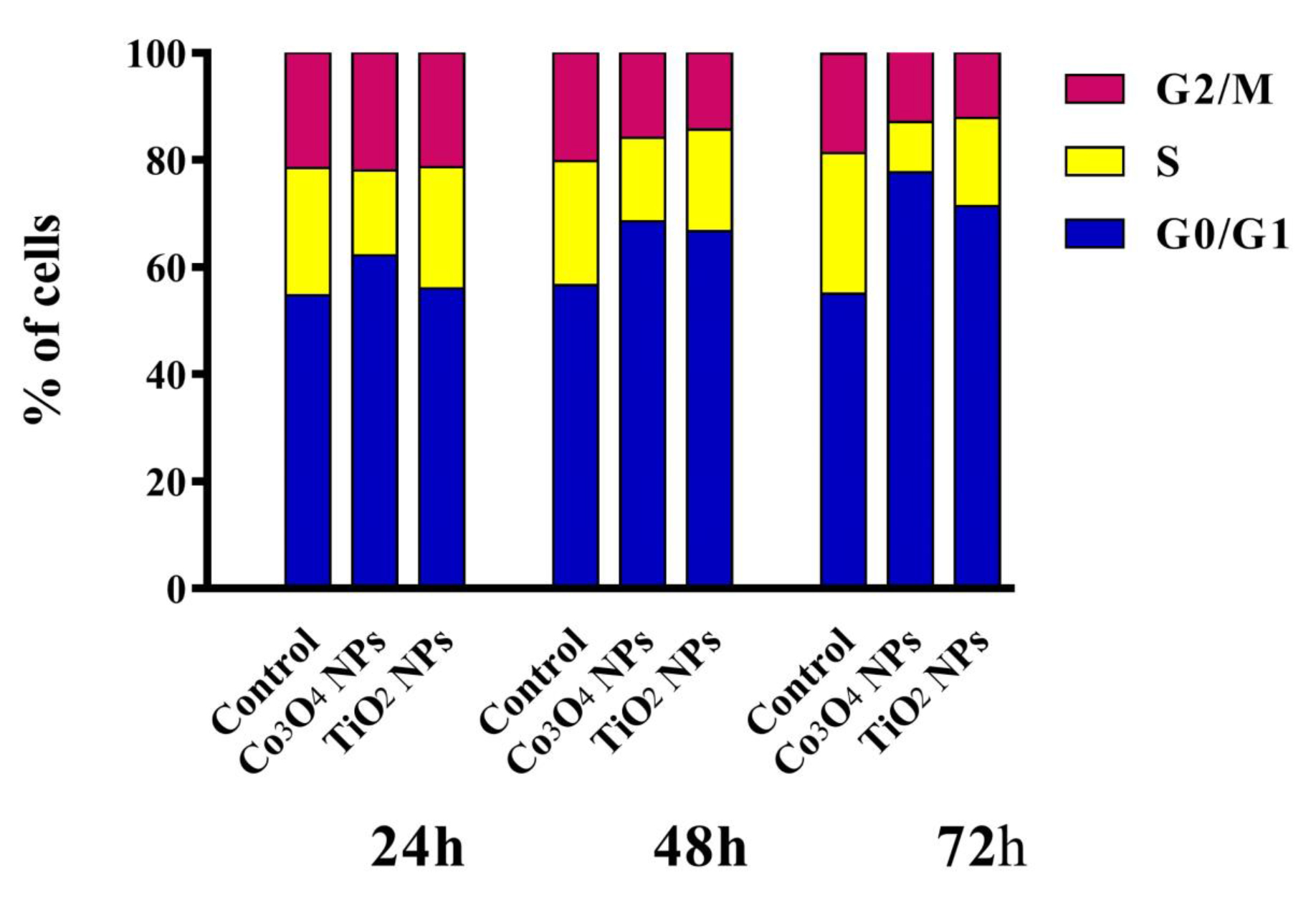The wide range of applications of nanoparticles (NPs) has increased the probability of environmental and occupational exposure. In a previous comparative study on cell line A549, we observed that oxidative stress caused by Co3O4 NPs affects the energetic homeostasis and the detoxification capacity, preventing autophagy induced by TiO2 NPs. In this study, we have investigated the effects of NPs on the cell cycle.Cytofluorimetric analysis showed a slow-down of the cell cycle progression for both NPs, with increases in the percentage of resting cells in the G0/G1. These observations were confirmed by a reduced expression of all cyclins, especially of CCNE1 and CDK2, involved in the late stages of the G1 phase, coupled with a significant increase in the expression of p21 only for Co3O4 NP exposure. On the contrary, the effects of TiO2 NPs were modest. Cell cycle related miRNA-34a, miRNA-126 and miRNA-1290 resulted increased at different early time-points (4-8h) but were down-expressed at 24h-48h only after TiO2 NP exposure. Our results show that NPs have an antiproliferative effect and deregulate cell cycle on A549 cells. These effects should not be underestimated because regulation of cycle progression is crucial for cell survival and repair of genetic damage.

